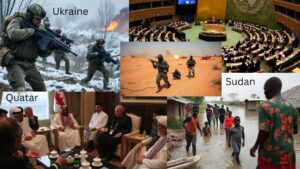Oswaldo Payá Sardiñas was a prominent figure in the Cuban political landscape, known for his unwavering commitment to democratic principles and civil rights. Born in Havana in 1952, Payá’s life journey was marked by his refusal to conform to the constraints of Cuba’s communist regime. His early defiance was evident when he declined to join the Young Communist League after the Cuban revolution. This act of non-compliance led to his incarceration in a labor camp for three years when he refused to transport political prisoners during his mandatory military service.

Despite facing adversity, Payá was undeterred in his pursuit of education and personal growth. After being expelled from the University of Havana, he demonstrated remarkable resilience by attending night school and eventually becoming an engineer. A pivotal moment in his life came when he was offered the opportunity to leave Cuba in 1980, during the Mariel boatlift. However, he chose to remain in his homeland, driven by a profound sense of duty and commitment to the cause of democracy.
 In his relentless pursuit of democratic values, Payá founded the Christian Liberation Movement, an organization dedicated to challenging one-party rule and advocating for civil rights in Cuba. His dedication to the cause was evident when he attempted to run for a seat in Cuba’s National Assembly in 1992, even though he was ultimately barred from doing so by the authorities.
In his relentless pursuit of democratic values, Payá founded the Christian Liberation Movement, an organization dedicated to challenging one-party rule and advocating for civil rights in Cuba. His dedication to the cause was evident when he attempted to run for a seat in Cuba’s National Assembly in 1992, even though he was ultimately barred from doing so by the authorities.
Inspired and mentored by Václav Havel, the former Czech dissident who had become the president of the Czech Republic, Payá embarked on the Varela Project. This initiative was a petition drive aimed at collecting 25,000 Cuban signatures in support of laws that would guarantee freedom of speech and pave the way for multi-party democracy in Cuba. This project marked a significant step in Payá’s mission to bring about change and challenge the status quo.
 Tragically, Payá’s life was cut short in 2012 when he and his associate Harold Cepero were killed in a car crash that many believe was orchestrated by agents of the Castro regime. Despite his untimely death, Payá’s legacy endures through his tireless efforts for democracy and human rights in Cuba. He received numerous awards for his advocacy, including the European Parliament’s 2002 Sakharov Prize for Freedom of Thought and multiple nominations for the Nobel Peace Prize.
Tragically, Payá’s life was cut short in 2012 when he and his associate Harold Cepero were killed in a car crash that many believe was orchestrated by agents of the Castro regime. Despite his untimely death, Payá’s legacy endures through his tireless efforts for democracy and human rights in Cuba. He received numerous awards for his advocacy, including the European Parliament’s 2002 Sakharov Prize for Freedom of Thought and multiple nominations for the Nobel Peace Prize.
Today, his memory lives on, with a resolution pending in the U.S. Senate to designate the section of road in front of the Cuban embassy in Washington, D.C. as “Oswaldo Payá Way.” This recognition serves as a testament to the enduring impact of Oswaldo Payá Sardiñas and his unwavering dedication to the pursuit of democracy and freedom for the Cuban people. His life story continues to inspire individuals around the world who are committed to the principles of justice, liberty, and human rights.










